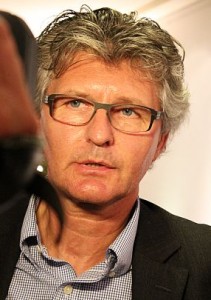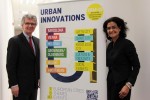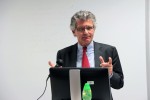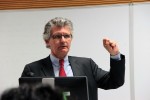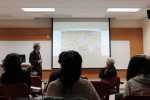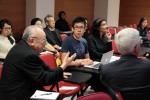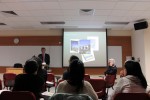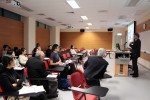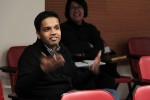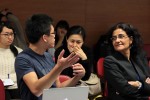Date/Time
Date(s): 10/02/2015
Time: 5:00 pm - 7:00 pm
- Category B: Seminar/Talk with a city-specific focus on current urban innovation projects for an interested academic audience & special-interest groups
- Groningen/ Oldenburg
Language: English
Admission: Free, please register below.
Event Partner(s): This event is organized in cooperation with Adenauer Foundation
Speaker(s):Prof. Dr. Gerd Schwandner, former Mayor of City of Oldenburg
Moderator: Prof. H. Werner Hess, Deputy Director, EUAP
CLICK TO READ SPEAKER’S BIOGRAPHY:
Event Description:
Europeans generally show civic pride in the city they live in. European identity is condensed in the center of the local urban habitat and often expressed in iconic architecture, be it churches, city halls, castles, theaters, museums or squares. In recent years, modern architecture has also served as the focal point for the dramatic turnaround of many ‘declining’ European cities.
In almost all cases (and in stark contrast to many Asian conurbations) culture plays an important role in developing the profile and brand of the modern European city. Another aspect is the conversion of abandoned factory buildings from a bygone industrial age into business incubators for start-up companies and cultural initiatives.
This lecture presents some urban renewal examples in more detail. Among others, it covers Bilbao (Spain) and its spectacular Guggenheim Museum, Groningen (Netherlands) with its art museum and the Groninger Forum, Oldenburg’s Smart House and Leipzig’s Alte Wollkämmerei in Germany.
Event Summary:
The concluding seminar discussed the significance of culture for both urban identity and urban economic development. European cities traditionally have developed around a civic centre configuration comprising market, church, city hall (or castle, palace) and other civic institutions such as theatres or museums. The ‘quality of living’ is to some extent dependent on them, both in a functional and symbolic perspective.
In recent years, modern architecture has also served as the focal point for the dramatic turnaround of many ‘declining’ European cities affected by structural economic change (from the industrial to the post-industrial stage). In almost all cases (and in stark contrast to many Asian conurbations) culture plays an important role in developing the profile and brand of the modern European city. Another aspect is the conversion of abandoned factory buildings from a bygone industrial age into business incubators for start-up companies and cultural initiatives.
This lecture presented some urban renewal examples in more detail. Among others, it covered Bilbao (Spain) and its spectacular Guggenheim Museum, Groningen (Netherlands) with its art museum and the Groninger Forum, Oldenburg’s Smart House and Leipzig’s Alte Wollkämmerei in Germany. It could be shown that the ‘signature effect’ of such investments almost always result in an increased ‘city brand’ recognition, improved identification of citizens with ‘their city’ and subsequently also considerable economic benefits. The creation of ‘reference buildings’ with surrounding public spaces, however, needs to complemented by a long-term master plan for citizen-oriented cultural policies.
Click to download the presentation content:
Culture & Urban Identity Formation (By Prof. Dr. Gerd Schwandner)
Photo album:
ENQUIRIES
Bookings
Bookings are closed for this event.

![[Public Seminar] Culture and Urban Identity Formation](http://euap.hkbu.edu.hk/series/wp-content/uploads/2015/01/IMG_3214.jpg)
